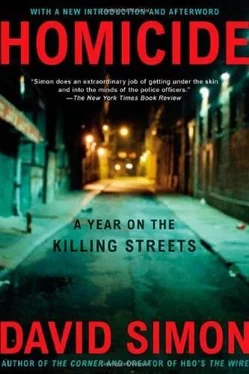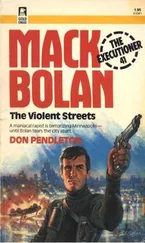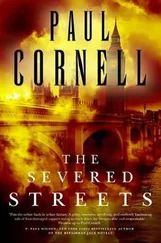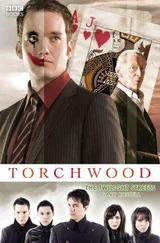“We’ve got one of them in there now going for a whole bunch of holdups,” Davis asked Worden. “You all have anything up there that might match up to these guys?”
Standing in front of the board, Worden needed exactly fifteen seconds before his elephantine memory settled on one name among fifty: Charles Lehman, the fifty-one-year-old killed on Fayette Street as he walked to his car with a Kentucky Fried Chicken dinner. Kincaid’s whodunit from February.
“I got one right in that area,” said Worden. “You’re talking to this guy now?”
“Yeah, he’s in the big interrogation room. Christ, Donald, he’s already gone for about a dozen robberies.”
After a brief parley with the kid in the large box, Worden knew that the kid could indeed put the Lehman murder down. The duty prosecutor that night, Don Giblin, was called down and the negotiations began. The prosecutor’s bottom-line offer: for identifying and testifying against the shooter on the Lehman murder, eleven years on one of the robberies and no immunity if you’re linked to any other murders or shootings.
Worden watched the kid mull over the deal, then attempt a counteroffer: “Five years.”
“You’re no good to me with five years,” the prosecutor told the kid. “A jury won’t believe you unless you get at least ten.”
“Too much,” said the kid.
“Oh, you don’t think you should get any time,” said Worden, disgusted. “What about all them people you robbed? What about that old lady you all shot on Monument Street?”
“We’re not talkin’ about them,” the kid snapped. “This is me we’re talkin’ about.”
Worden shook his head and walked from the room, leaving Giblin to cement the deal. It was ugly, all right, but the warrant for twenty-five-year-old Anthony Cunningham went to a court commissioner that same night. Now, with Cunningham locked up, that case, too, was down.
Four nights, two murders. McLarney has to wonder how many other detectives would have noticed that one drinking glass was a little too far from the others? And how many detectives would have made the connection between the Lehman case and the other east side robberies? Hell, McLarney tells himself, most detectives can’t remember the cases worked by their own squad, much less those handled by some other squad five months back.
“You can’t leave,” McLarney tells Worden, renewing his appeal.
Worden shakes his head.
“You can’t,” says McLarney, laughing. “I won’t let you.”
“You’re just talking like this ’cause you’re losing a detective. That’s what you’re worried about, right? You just don’t want to have to spend the time to break in a new guy.”
McLarney laughs again and leans back against the front of his car. He reaches into the paper bag for the last can. “If you leave, there’ll be no one around to fuck with Dave Brown and he’ll go all derelict.”
Worden gives back a half-smile.
“If you quit, Donald, he’ll start thinking he knows what he’s doing. It’ll be dangerous. I’ll be writing long reports for the captain every other week.”
“Waltemeyer will keep on him.”
McLarney shakes his head. “I can’t believe we’re even talking about this…”
Worden shrugs. “You’re the one talking.”
“Donald, you…” says McLarney, pausing to stare down the cross street toward Monument. Worden fidgets, rolling the keys to his truck back and forth on their ring.
“You see him?” asks McLarney suddenly.
“The boy in the gray?”
“Yeah, the sweatshirt.”
“Yeah I seen him. He’s only walked by here four times now.”
“He’s marking us.”
“Yeah, he is.”
McLarney stares back up the cross street. The kid is wiry and dark-skinned, sixteen or seventeen, wearing spandex bike shorts and a hooded sweatshirt. It’s still eighty degrees or better and the kid has both hands in his pockets and the hoody zipped tight.
“He thinks we’re victims,” says McLarney, laughing under his breath.
“Two old white guys hanging in an empty lot at this hour,” snorts Worden. “I’m not surprised.”
“We’re not old,” says McLarney, objecting. “I’m not old anyway.”
Worden smiles, tosses the key ring and catches it with the other hand. He told himself that he would be going straight home after the four-to-twelve shift; instead, he spent two hours on a Kavanaugh’s barstool, hurting himself with Jack Black. But the last hour’s temperance-Worden had no taste for the Miller Lite that McLarney bought carryout-was bringing him back down to earth.
“I got to get up early,” he says.
McLarney shakes his head. “I don’t want to hear this, Donald. You’ve had a bad year, all right, so what? So you get back in the saddle on another case and things change. You know how it is.”
“I don’t like being used.”
“You weren’t used.”
“Yes,” says Worden. “I was.”
“You’re still angry about Monroe Street, right? We disagreed about that and that’s okay, but that’s-”
“No. This isn’t about Monroe Street.”
“Then what?”
Worden grimaces.
“This Larry Young thing?”
“That’s part of it,” says Worden. “That’s definitely part of it.”
“Well, that was fucked, I have to admit.”
“They used me,” Worden repeats. “They used me to do their dirty work. I don’t need that.”
“They used you,” McLarney agrees reluctantly.
Worden turns his head slightly, catching the kid in the gray hoody out of one eye. Like a shark circling the raft, the kid is once again edging down the opposite side of the cross street, hands still deep in his pockets, watching the two men without seeming to watch them.
“Enough is enough,” says McLarney. He drains the can in one fluid motion, then reaches into his jacket pocket while starting across the lot. The kid has changed directions again, moving toward the detectives from the other side of the street.
“Don’t go and shoot him, Terry,” says Worden, mildly amused. “I don’t wanna spend the first day of my vacation writing.”
At McLarney’s approach, the kid slows, suddenly confused. The sergeant pulls the silver shield out and waves it once in a way that suggests nothing more than irritation. “We’re cops,” he yells at the kid. “Go rob someone else.”
One flash of silver and the kid is off on a new vector, bounding back to the other side of the street. He throws his hands in the air, palms open, as if to surrender.
“I ain’t about robbin’ nobody,” the kid yells over his shoulder. “You got it wrong.”
McLarney waits long enough for the kid to disappear onto Madison, then walks back to the conversation.
“We’re cops and you’re not,” says Worden, amused. “That was good, Terry.”
“I guess we pretty much fucked up his night,” says McLarney. “He wasted half an hour on us.”
Worden yawns. “Awright, sergeant. I think it’s about time to be heading down the road here…”
“Guess so,” says McLarney. “I’m outta beer.”
Worden gives his sergeant a light chuck on the arm and begins sorting through the key ring.
“Where’d you park?”
“Up on Madison.”
“I’ll walk you.”
“What’re you? My date?”
McLarney laughs. “You could do worse.”
“Not really.”
“Listen, Donald,” says McLarney abruptly. “Just give it some time. You’re pissed off now and I don’t blame you, but things will change. You know this is what you want to do, right? You don’t want to do anything else.”
Worden listens.
“You know you’re the best man I’ve got.”
Worden shoots him a look.
“Really, you are. And I’d hate like hell to lose you, but that’s not why I’m saying this. Really.”
Читать дальше












